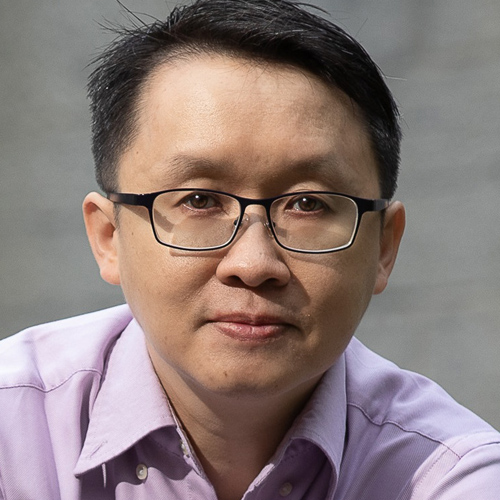
Recently I made a routine phone call to my grandma, Helen Taylor, to ask her to share two things with me: a CBC article she had earlier mentioned that I might be interested in, and her sweet and savoury banana bread recipe. Nothing noteworthy for most Canadians. But for certain diaspora communities these days, this routine phone call and simple act of information-sharing would be considered too dangerous to attempt.
In a recent CBC interview, Cherie Wong, executive director of Alliance Canada Hong Kong, emphasized this danger. She explained how she has cut all ties, including routine calls, with family members living in Hong Kong out of fear that her activism in Canada will result in the Chinese Communist Party (CCP) retaliating against her family, as it has done in other cases.
MP Michael Chong is another Canadian who cut off ties with his family in Hong Kong to try to protect them. Last week CSIS confirmed to the Conservative MP from Ontario that his family was the target of an intimidation campaign by a Chinese diplomat based in Toronto.
These stories illustrate the CCP’s direct influence on diaspora communities, making these groups a target for foreign interference efforts. The CCP and China are not alone in conducting interference campaigns in Canada through disinformation campaigns, which have a significant and negative impact on the people who make up diaspora communities in Canada.
Intimidation through disinformation and social media
Disinformation is defined by the RAND Corporation as “false, incomplete, or misleading information that is passed, fed, or confirmed to a target individual, group, or country.” Disinformation can be used as a mechanism for foreign interference through intimidation, a mechanism of social division, and a way to discredit an adversary. Using social media to spread disinformation presents a particular threat, given how fast it can move. Social media is also challenging to regulate and highly effective in creating public distrust, furthering the success of disinformation campaigns.
The CCP takes advantage of this reality by directly targeting diaspora communities on Chinese social media such as WeChat, which is used by many Chinese Canadians. WeChat has many social groups that connect local Chinese communities in Canada. These online social groups can provide valuable resources for new immigrants or new Canadians originally from mainland China. The CCP knows this and targets them in simple but sophisticated ways by creating groups which instead of trying to hard-sell pro-CCP and Chinese nationalism, position themselves as protecting the Chinese community from racism in Canada.
Fostering an image of legitimacy in these ostensibly anti-racism groups online takes years to build. Then, during critical moments, such as elections (at all levels, be it municipal, provincial, or federal) they become channels for spreading CCP-orchestrated disinformation. One example occurred during Vancouver’s municipal election in 2022. The Globe and Mail reports that the Chinese consulate interfered to increase the likelihood of Ken Sim’s election as mayor. This is not to detract Sim’s work as mayor; rather, it is emblematic of the threat of foreign interference to the integrity of Canadian democracy.
Self-censorship is also a crucial element to consider in foreign interference involving diaspora communities. Disinformation campaigns often start from fake news or op-eds published by pro-CCP community leaders in traditional media, pushed by social bots and further amplified by influencers. WeChat users, even though they are in Canada, understand that their online activities are nevertheless being watched by the CCP. Therefore, most members of diaspora communities engage in self-censorship because they are afraid their actions in Canada will endanger themselves, their family and friends in China. This self-censorship can further advance disinformation campaigns because the fake news thus becomes the dominant voice and perspective, creating a sense of perceived credibility. The result is disinformation which has the effect of interfering with democratic discussion and debate and must be considered a direct threat to Canadians’ safe engagement in civil discourse.
What can be done to mitigate this threat and safeguard democratic practices for all Canadians? To start to address this question, we can look south of the border. Despite the differences between the media landscapes in Canada and the U.S., it is worth noting how the U.S. has approached similar threats to its own democratic process from foreign elements.
Lines of defence
Established in 2016, the Global Engagement Centre (GEC), a branch of the State Department, is the United States’ lead government institution for countering the production, distribution and influence of foreign disinformation. It uses five key “lines of effort” to counter disinformation campaigns:
- Analytics and research;
- International partnerships;
- Programs and campaigns;
- Exposure;
- Technology assessment and engagement.
This approach has some significant advantages, particularly in its programming to build societal resilience to foreign disinformation campaigns. Even so, the GEC faces several large challenges and limitations. For example, it focuses on disinformation, which is only one element of foreign interference.
The organization is also limited in its collaboration with other government departments and the private sector. Foreign interference requires a more co-ordinated effort across multiple sectors and departments within the government. However, the bottom line remains that the GEC’s existence and growing institutional presence can help increase awareness about the threat of foreign interference and thus build greater resilience in civil society.
So, how might Canada move forward in its measures to counter disinformation and foreign interference campaigns? Based on the aforementioned research and description of the danger of disinformation campaigns as vehicles of foreign interference, we see three avenues toward building solutions.
First, legislation is needed to reduce the presence of disinformation and foreign interference in Canada. Leaders in civil society, including Ms. Wong, have been advocating this for several years. It is time for governments (national, provincial, and municipal) to enact laws and bylaws which regulate algorithmic transparency in social media companies and require the labelling of algorithmically produced and sponsored content. In combination, these can create a multifaceted approach to reduce the spread of foreign disinformation.
Misinformation and Chinese interference in Canada’s affairs
Is Canada’s first proposed foreign influence legislation ruthless or toothless?
Second, an agency or other organization could be established to detect and combat disinformation in Canada under strict transparency and accountability standards. The adherence to these standards will be crucial to rebuild trust with diaspora communities and work towards decreasing self-censorship in Canada. Such an agency would help restore confidence among members of diaspora communities – and all Canadians – that they can exercise their right to freedom of speech unfettered by foreign interference.
Lastly, co-operation with social media companies is needed to improve the detection of disinformation and limit its spread. As evident with the structure of the GEC in the U.S., giving this task to one siloed government body is not the most effective approach. Public-private partnerships are needed to strengthen efforts to stop disinformation from negatively impacting the security of all Canadians and Canadian democracy.
Put together, these steps can help restore and preserve not only the resilience of our institutions but can also demonstrate the key Canadian value which has drawn millions of newcomers to the country over the years: that the fundamental right to freedom of speech matters and won’t be left to languish at the hands of foreign entities seeking to undermine Canadian democratic principles.













